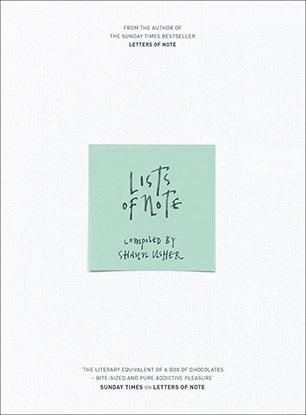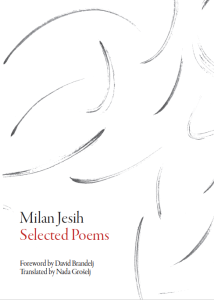 An Android Awakes is an entertaining, sexy, terrifying, and beautiful novel, full of bleakness and fun. While the book is probably not going to suit the prudish or faint-hearted reader looking for an easy read, other readers will enjoy the rich and powerful language, the complex plot lines, and the wacky and inventive landscape that both French and Brown have created in this superb graphical novel.
An Android Awakes is an entertaining, sexy, terrifying, and beautiful novel, full of bleakness and fun. While the book is probably not going to suit the prudish or faint-hearted reader looking for an easy read, other readers will enjoy the rich and powerful language, the complex plot lines, and the wacky and inventive landscape that both French and Brown have created in this superb graphical novel.
Interview with Megan Futcher
 The author of Fourborn Wind and Fire – a new fantasy book series talks about her writing habits, her love for fantasy, ebooks vs print books, traditional vs indie publishing, her ‘real life’ inspirations, her technologies, themes, and lots more.
The author of Fourborn Wind and Fire – a new fantasy book series talks about her writing habits, her love for fantasy, ebooks vs print books, traditional vs indie publishing, her ‘real life’ inspirations, her technologies, themes, and lots more.
A review of The Buried Giant by Kazuo Ishiguro
 The Buried Giant is not an easy book. Its simple prose belies the complexity of the narrative, and the multiple layers of meaning as Ishiguro presents us with extremes that are equally unpalatable, and both of which could well be seen as the modern condition. At times, the fog is enough to engulf the reader, and the work seems to be as obscure in its meaning as the location of Beatrice and Axl’s son’s village.
The Buried Giant is not an easy book. Its simple prose belies the complexity of the narrative, and the multiple layers of meaning as Ishiguro presents us with extremes that are equally unpalatable, and both of which could well be seen as the modern condition. At times, the fog is enough to engulf the reader, and the work seems to be as obscure in its meaning as the location of Beatrice and Axl’s son’s village.
A review of Black Earth: The Holocaust as History and Warning by Timothy Snyder
To my mind, this is a clear, convincing and rounded account of the Holocaust, the best we have had to date. Snyder makes telling use of Russian, Polish, and Ukrainian sources and he also pays meticulous attention to what the Nazis themselves wrote and said. The result is a context and a narrative in which – and, yes, it sounds almost immoral to say this – the Holocaust makes a kind of sense.
Martin Langford on his new book Ground
Martin Langford reads from his new poetry book Ground, and talks about his overarching principle of spaces places and the evolution of the book as a collection, about time and timelessness, about Australian history and how it plays out in…
A review of Macbeth directed by Justin Kurzel
 Faced with the prospect of a dreary peace, Macbeth the triumphant warrior goes for the main prize: King Duncan’s crown. It is an exhilarating adaptation of Shakespeare’s great tragedy but I feel that the emphasis is sometimes misplaced or even absent. For example, Lady Macduff’s ‘I have done no harm’ speech, usually the most moving in the whole play, is delivered while she’s on the run from murderers. They can’t hear her, we wonder why she’s starting a conversation. Run faster, woman.
Faced with the prospect of a dreary peace, Macbeth the triumphant warrior goes for the main prize: King Duncan’s crown. It is an exhilarating adaptation of Shakespeare’s great tragedy but I feel that the emphasis is sometimes misplaced or even absent. For example, Lady Macduff’s ‘I have done no harm’ speech, usually the most moving in the whole play, is delivered while she’s on the run from murderers. They can’t hear her, we wonder why she’s starting a conversation. Run faster, woman.
A review of Lists of Note by Sean Usher
 Ultimately, what Lists of Note shows us is that we’re not alone in our desire to tame the rush of information, tasks, and needs that bombards us everyday. Listmaking is both rational and helpful in our chaotic lives and has always been so. More importantly, Lists of Note teaches us that the list, is more than ephemera. It is a key to who we are, and at its best, can actually be a beautiful, and even artistic medium.
Ultimately, what Lists of Note shows us is that we’re not alone in our desire to tame the rush of information, tasks, and needs that bombards us everyday. Listmaking is both rational and helpful in our chaotic lives and has always been so. More importantly, Lists of Note teaches us that the list, is more than ephemera. It is a key to who we are, and at its best, can actually be a beautiful, and even artistic medium.
A review of IV (50 ‘I’ Statements) by Basil Eliades
 Beyond the mistakes and the failings of humans which are highlighted in these poems, there is something that redeems us. We can, and must, love, and transcend. IV is a collection poetry about the ephemeral nature of life, of pain, about how we learn, grow, become mindful/present/enlightened, and above all, about love. No matter how much we’ve severed, sutured, eluded and deconstructed, love is always transformative.
Beyond the mistakes and the failings of humans which are highlighted in these poems, there is something that redeems us. We can, and must, love, and transcend. IV is a collection poetry about the ephemeral nature of life, of pain, about how we learn, grow, become mindful/present/enlightened, and above all, about love. No matter how much we’ve severed, sutured, eluded and deconstructed, love is always transformative.
A review of Selected Poems by Milan Jesih
 Jesih is from Slovenia. Natural aspects of this country, along with the author’s own thrust toward existential questions, serve to inform the poems in the book. He takes notes while walking, while reflecting, and brings the reader along for the journey. One gets the sense from his poetry that Jesih is a peripatetic wordsmith.
Jesih is from Slovenia. Natural aspects of this country, along with the author’s own thrust toward existential questions, serve to inform the poems in the book. He takes notes while walking, while reflecting, and brings the reader along for the journey. One gets the sense from his poetry that Jesih is a peripatetic wordsmith.
A review of Ground by Martin Langford
 Though the lessons that Langford presents through this work are harsh, the writing never falters. It is always lyrical, exquisite, and ultimately affirmative. Though there is nothing didactic about Ground, these are poems that teach us know to go on in the face of what we’ve done, through words, dance, sorrow, attention and ultimately love.
Though the lessons that Langford presents through this work are harsh, the writing never falters. It is always lyrical, exquisite, and ultimately affirmative. Though there is nothing didactic about Ground, these are poems that teach us know to go on in the face of what we’ve done, through words, dance, sorrow, attention and ultimately love.